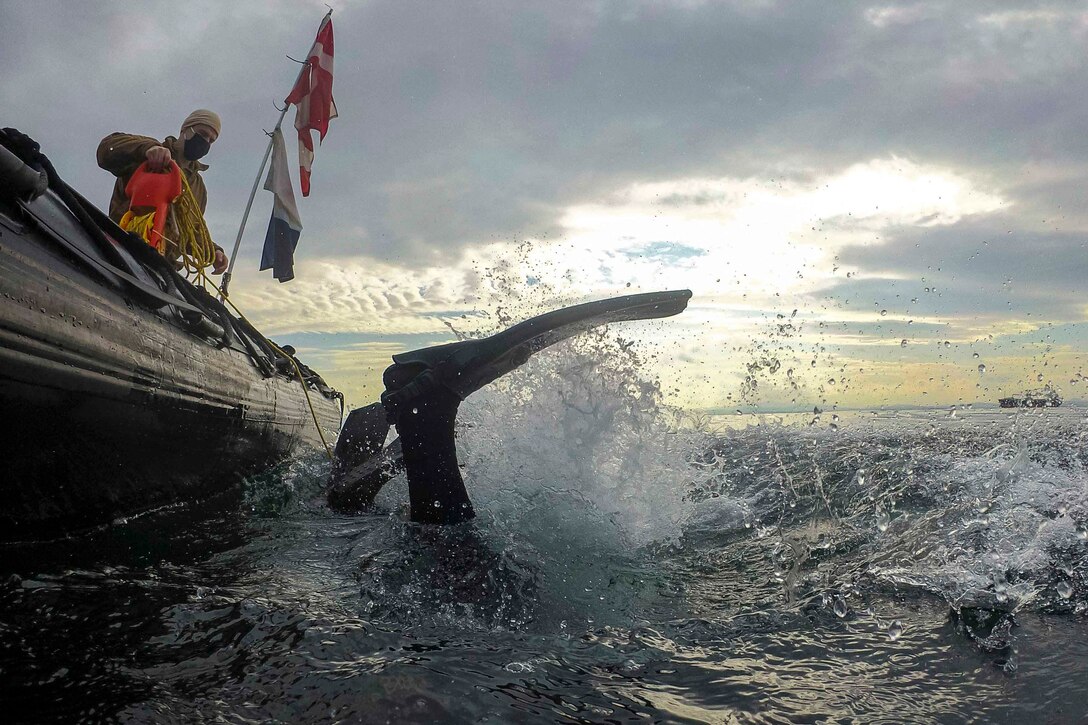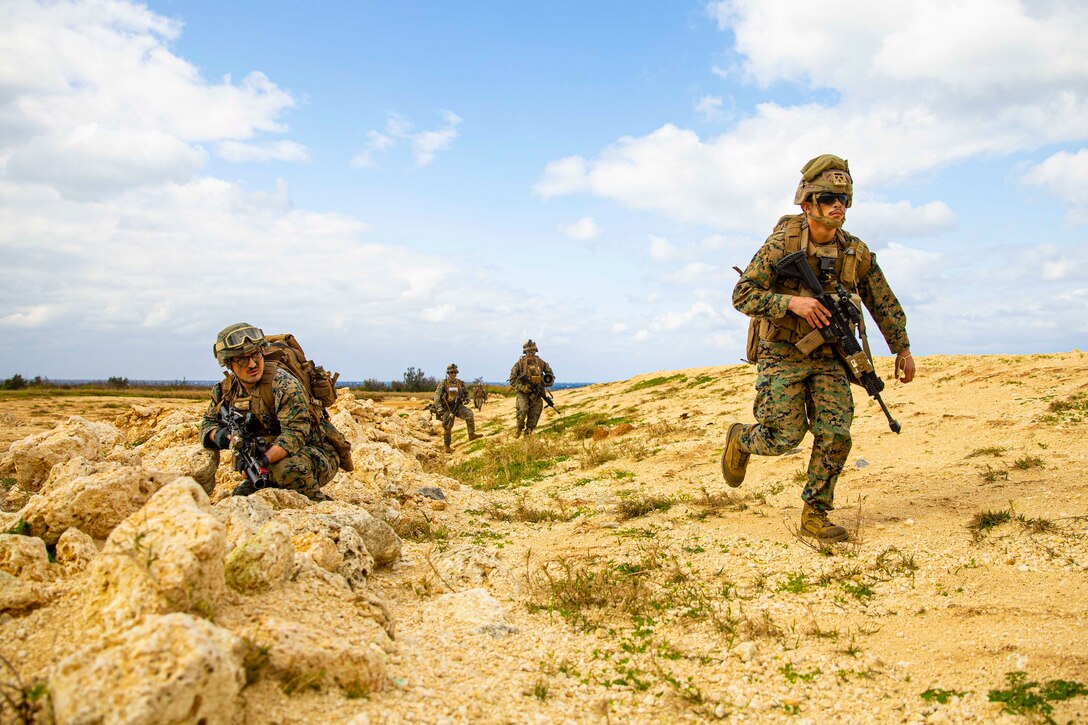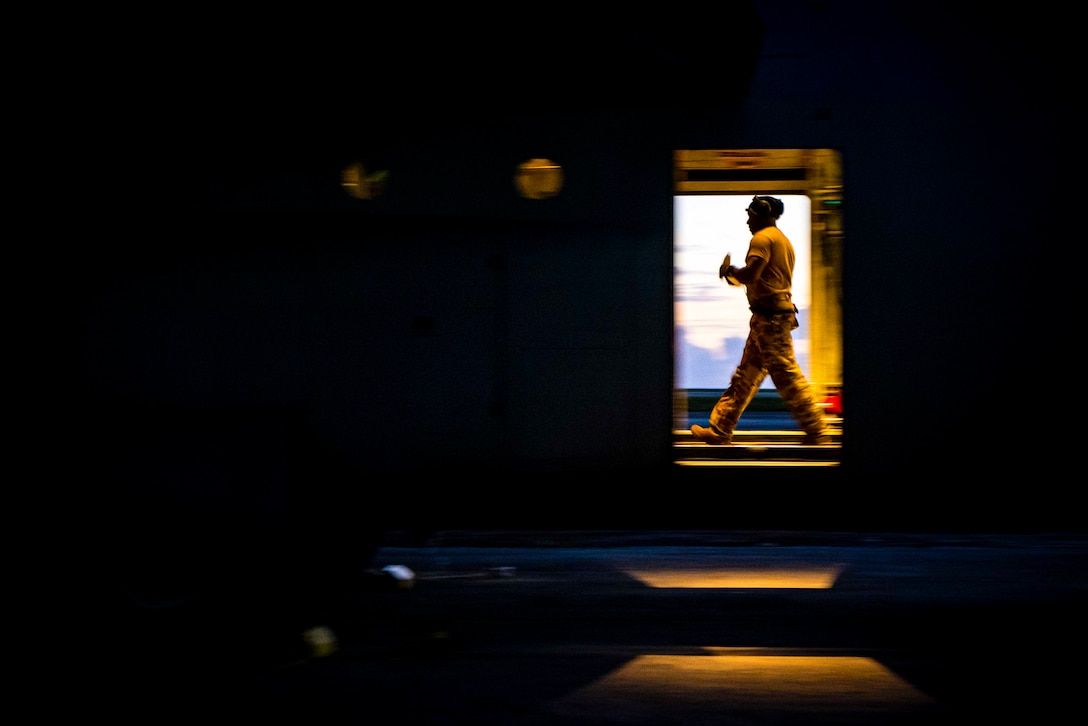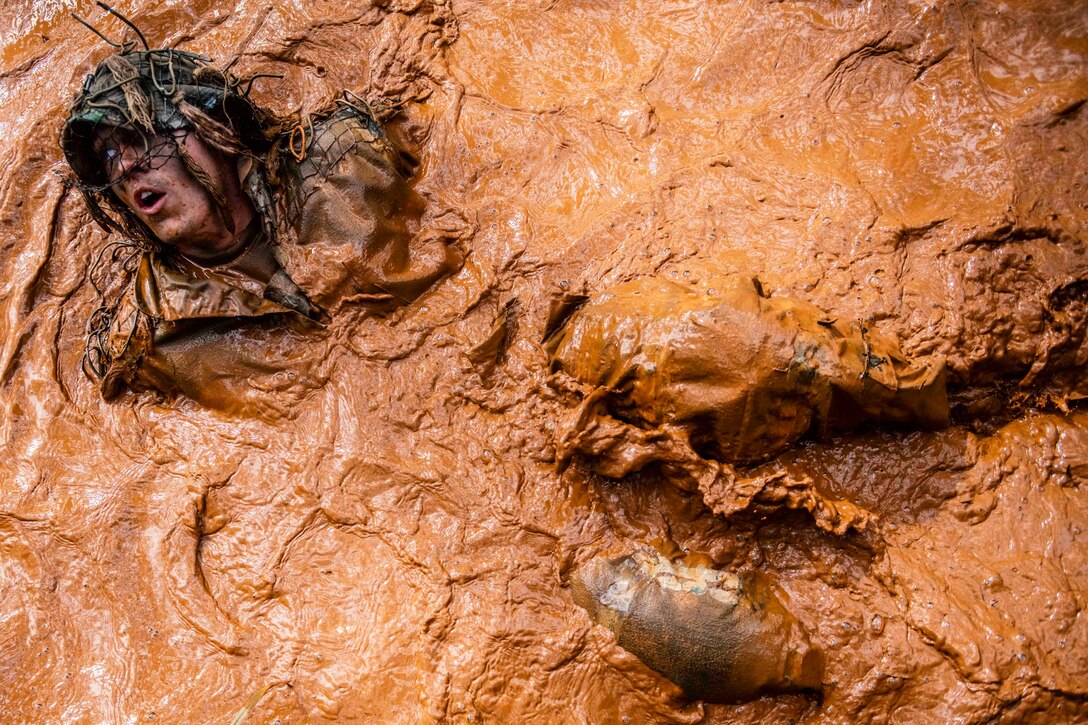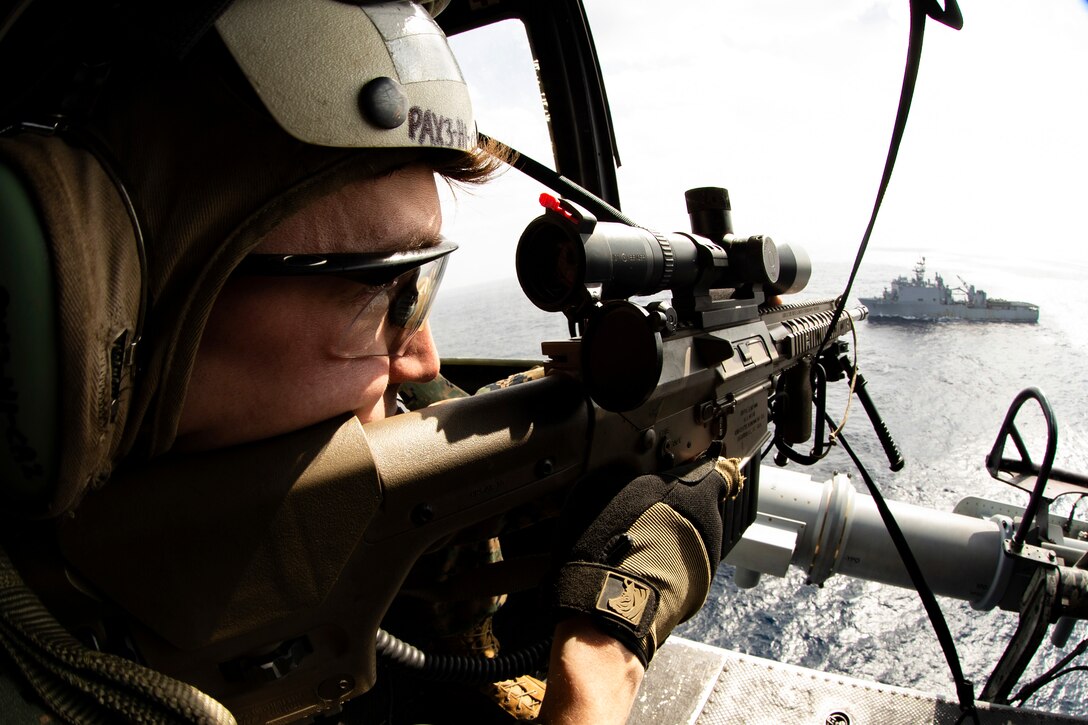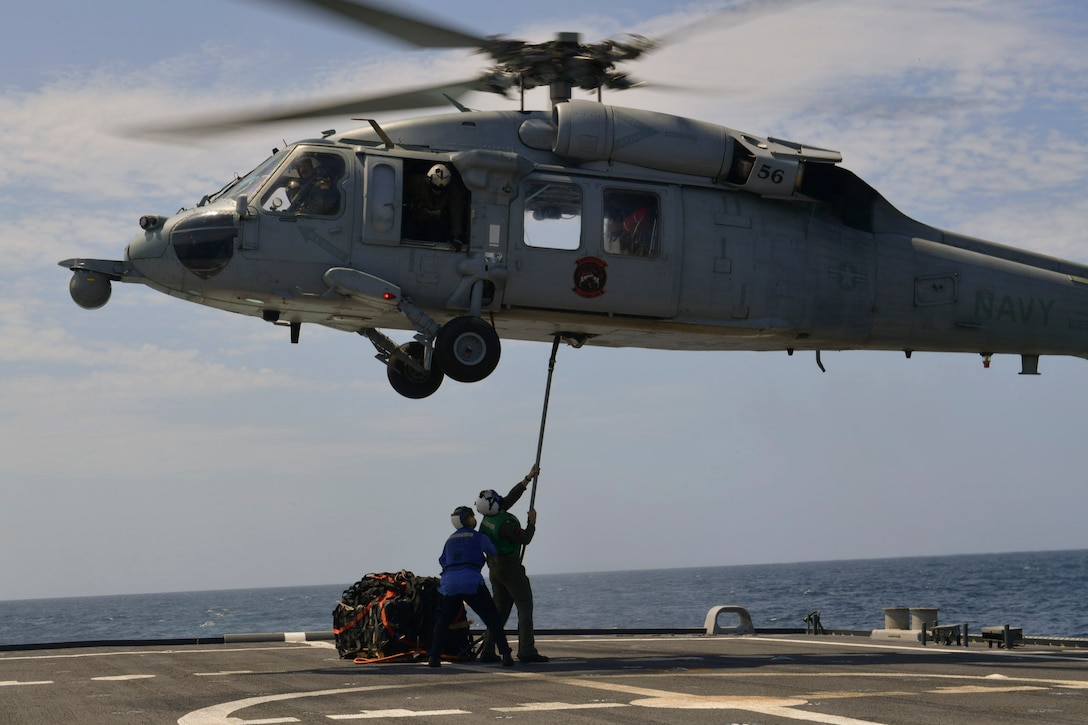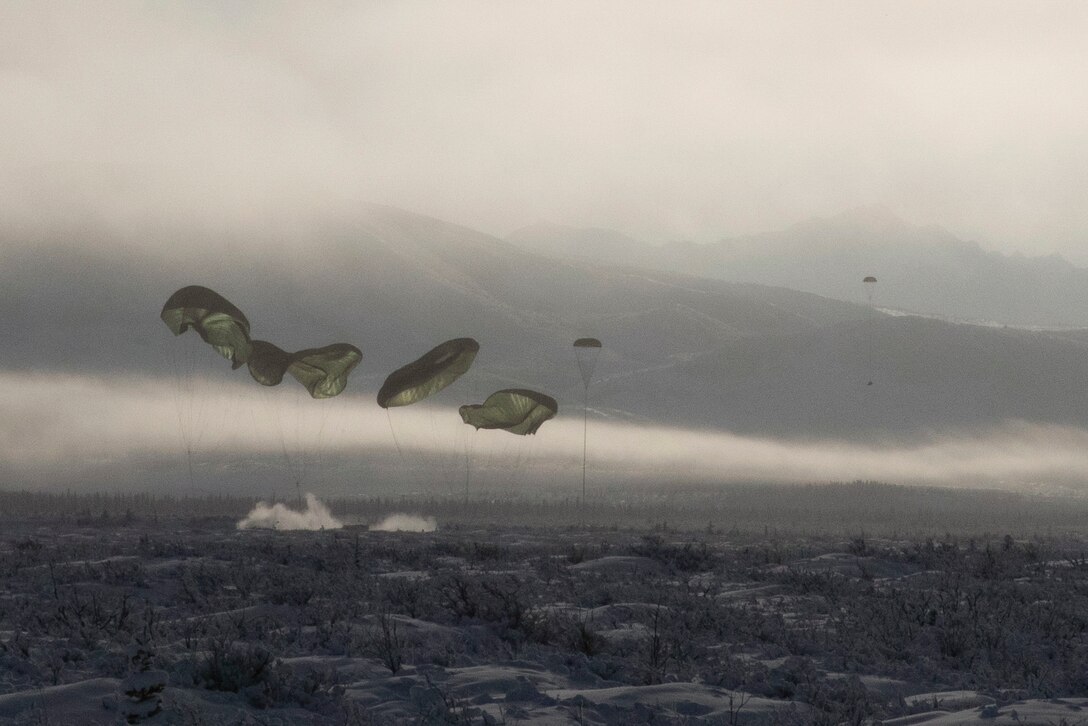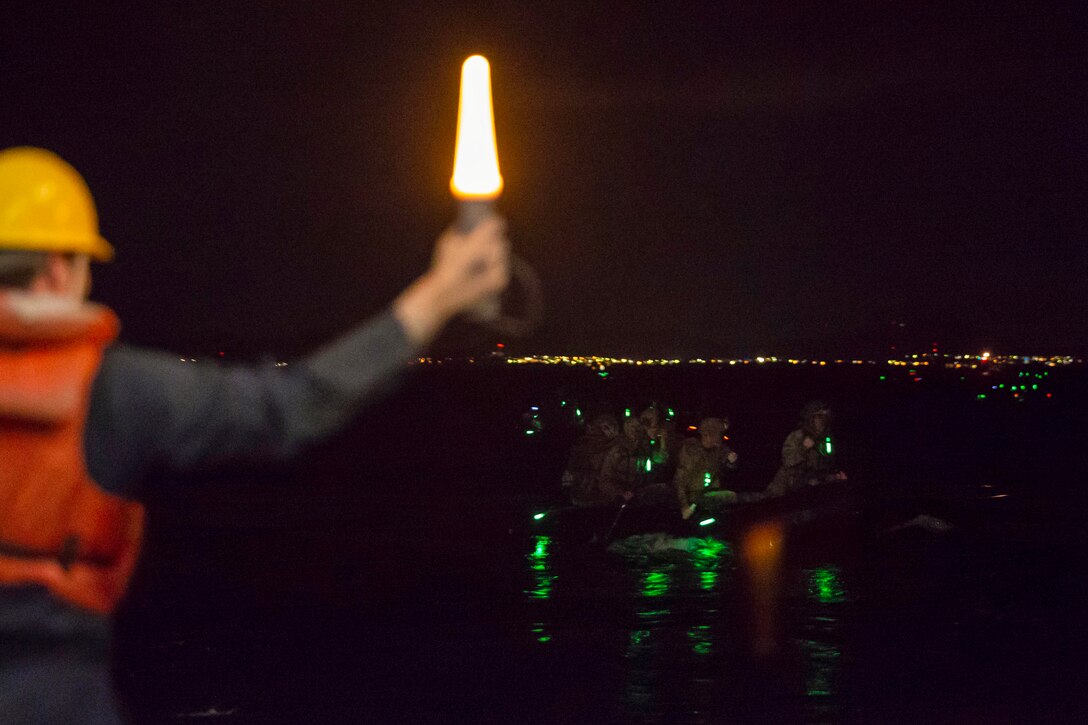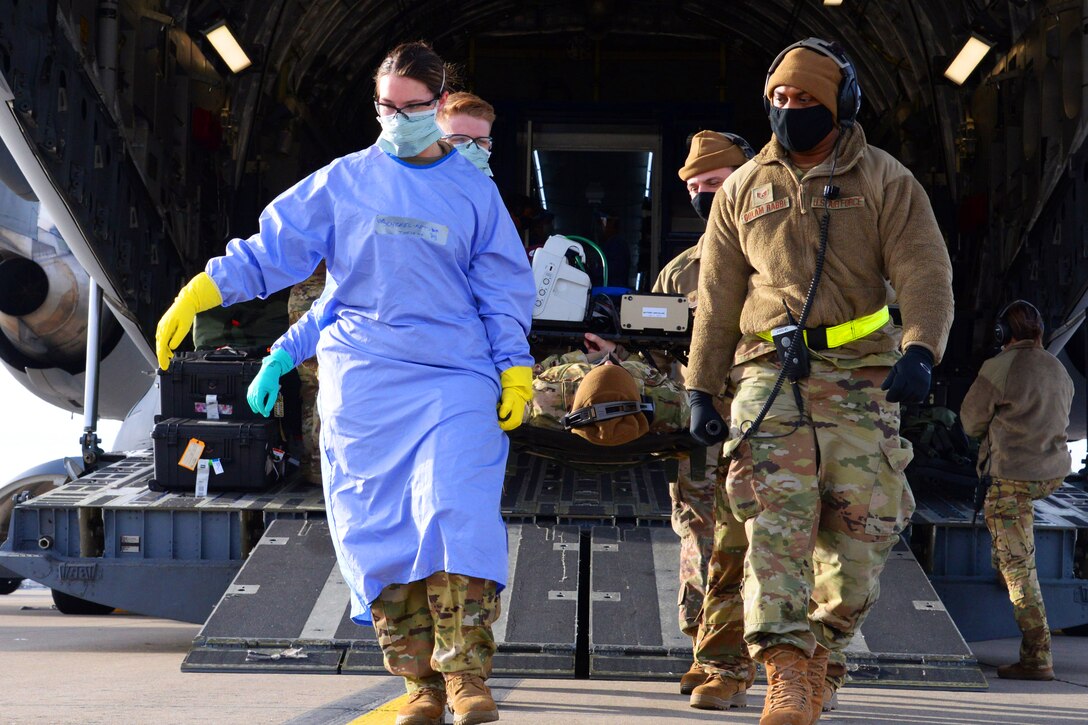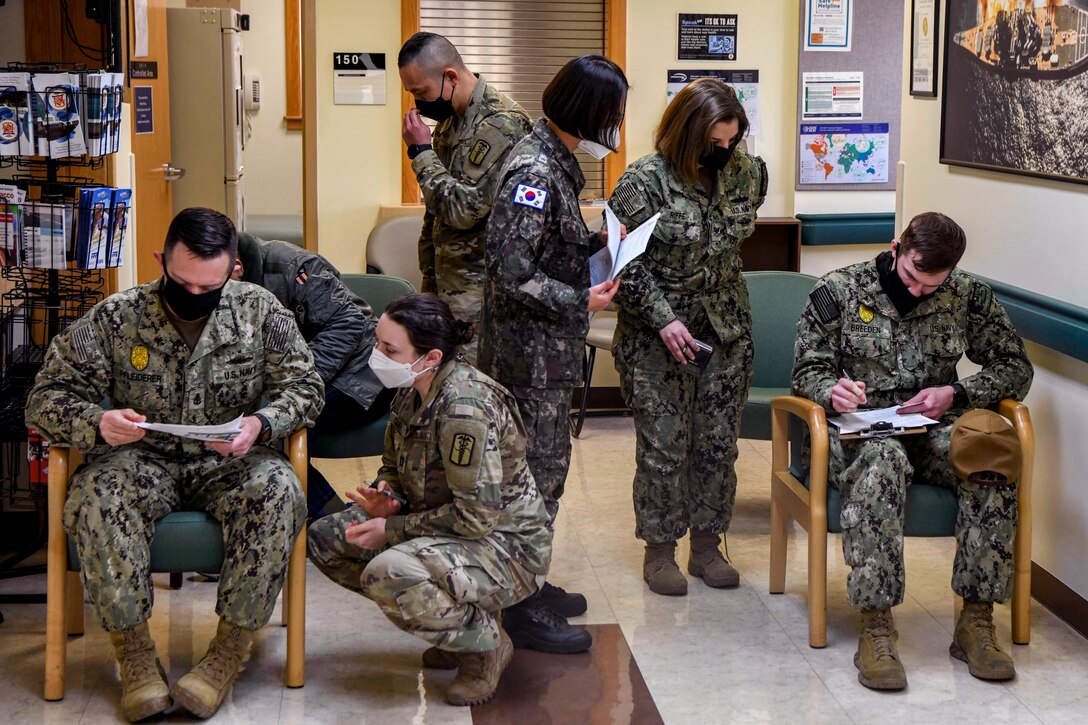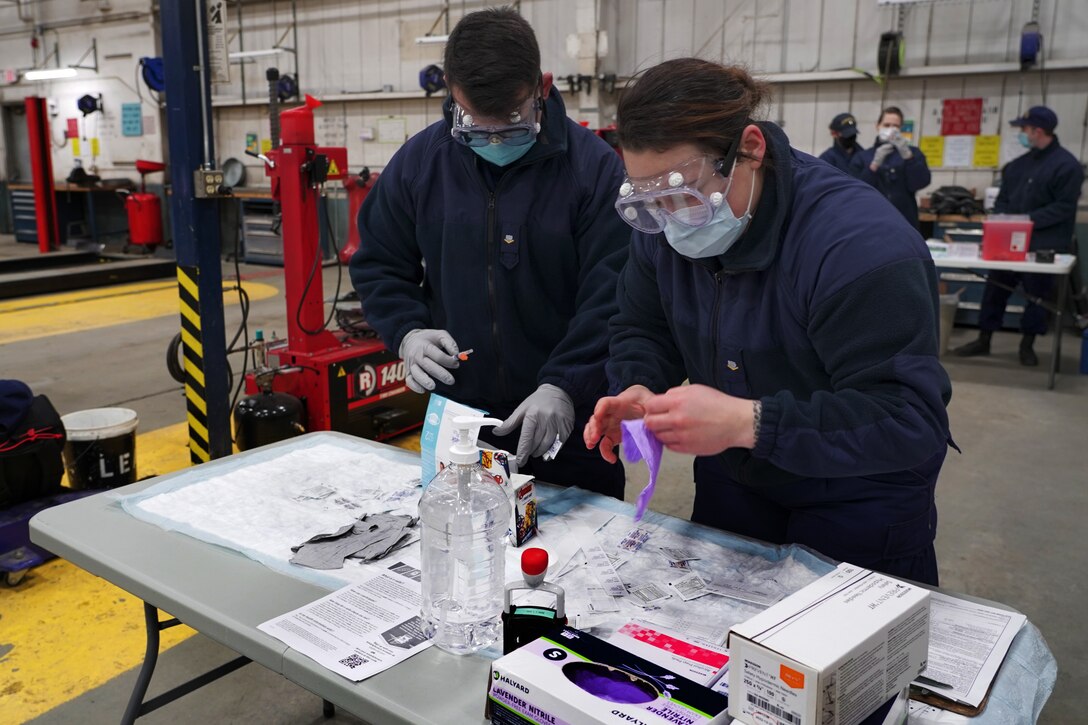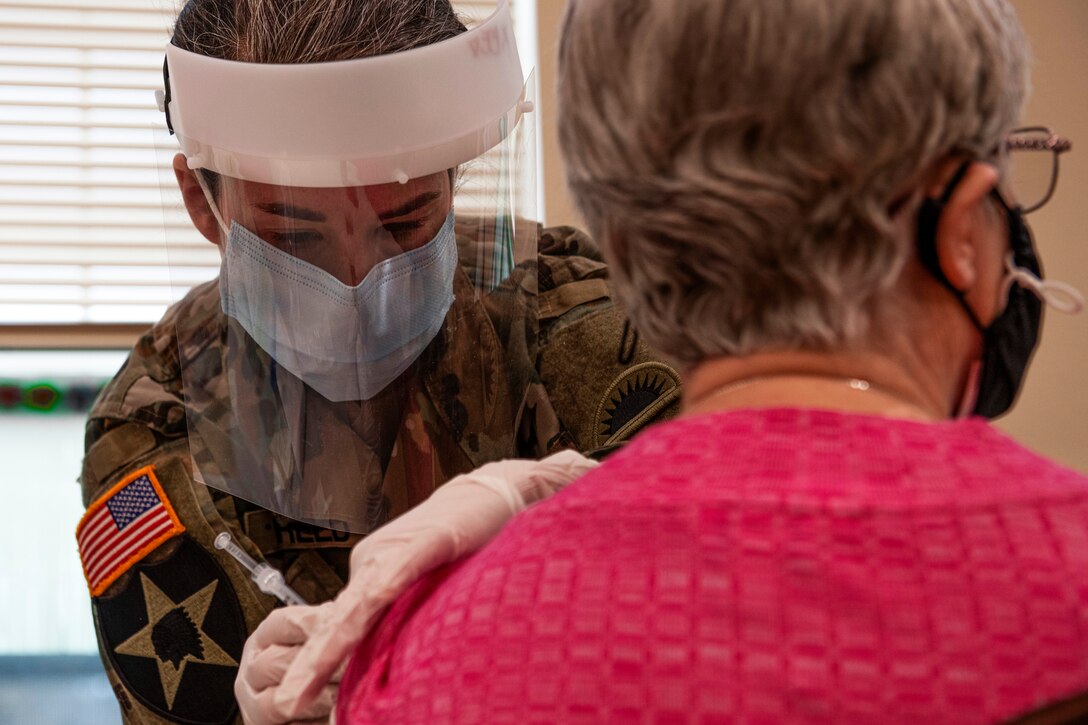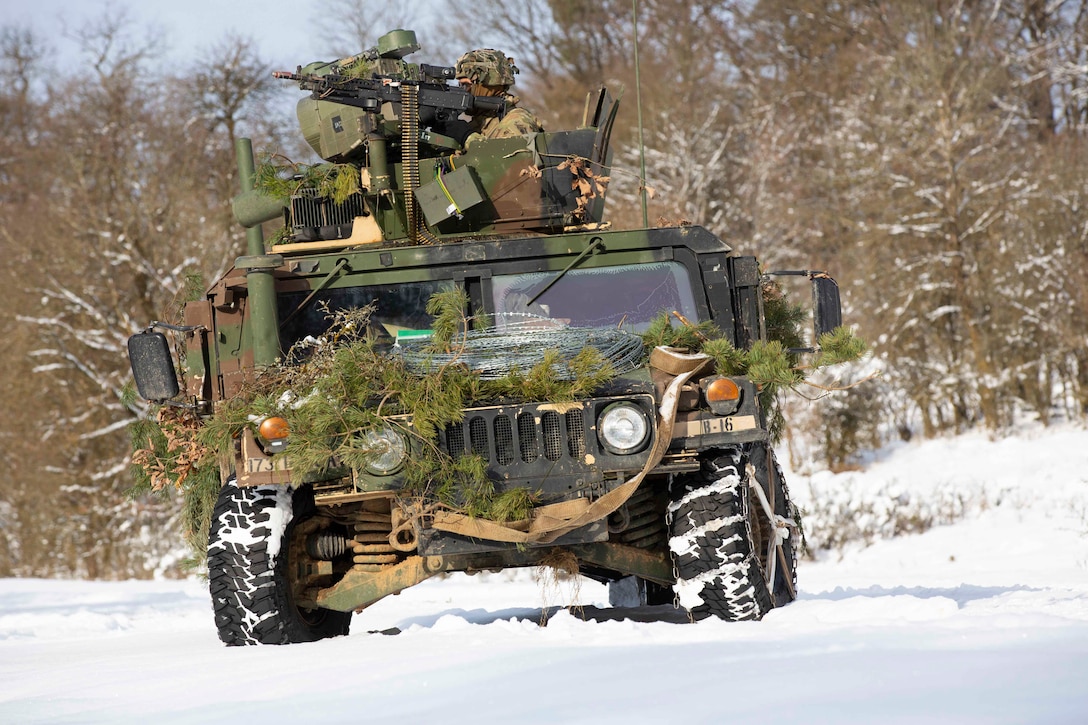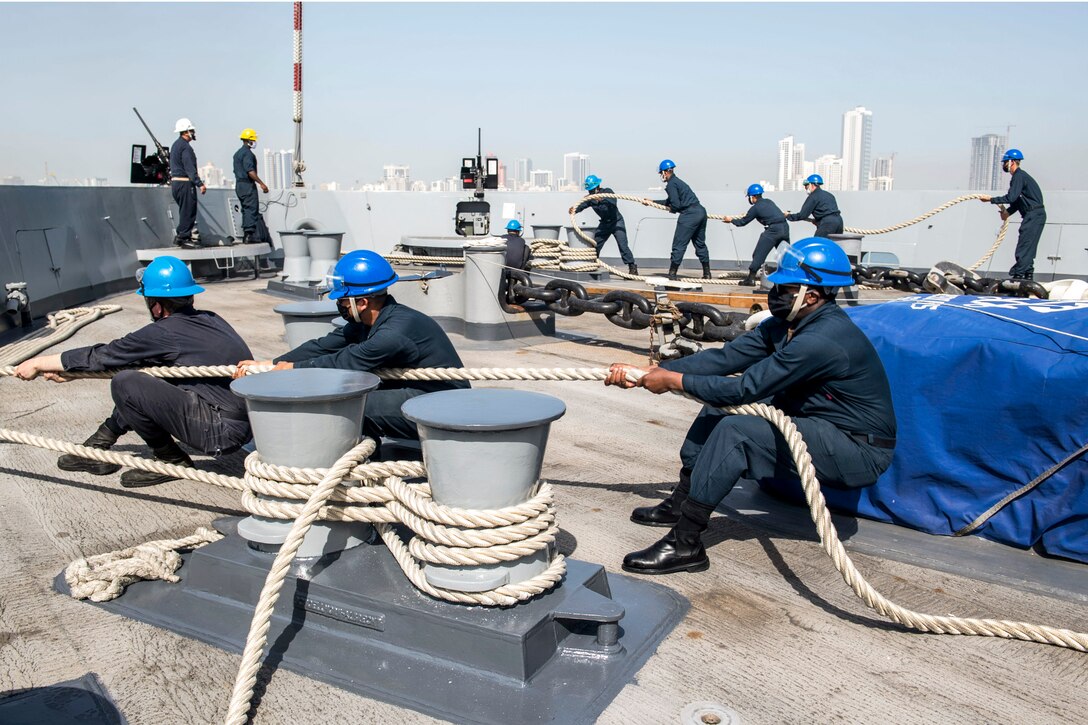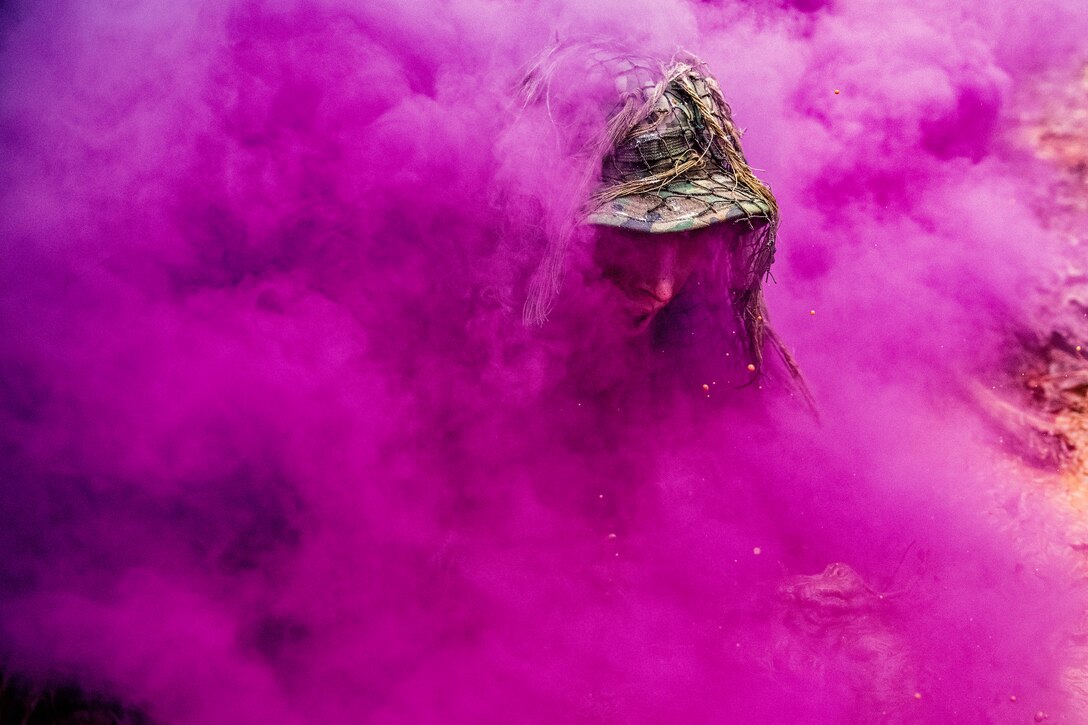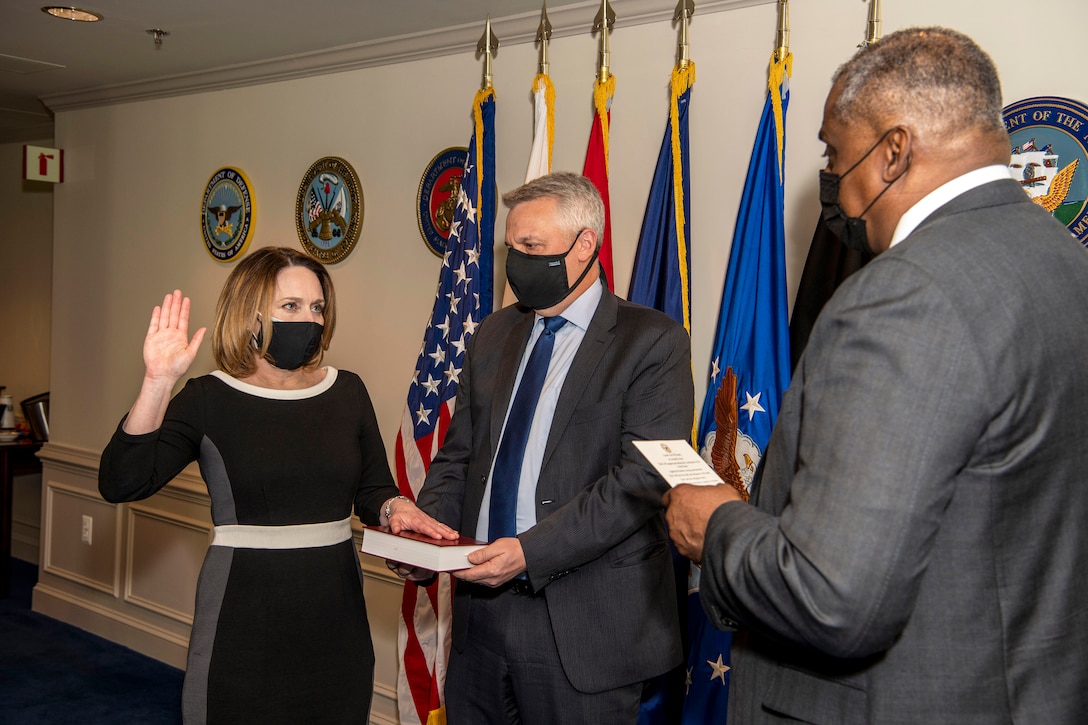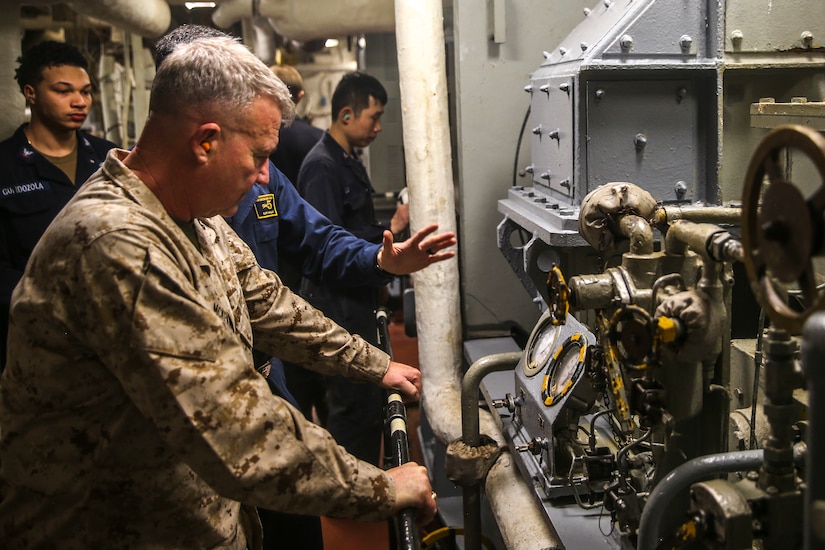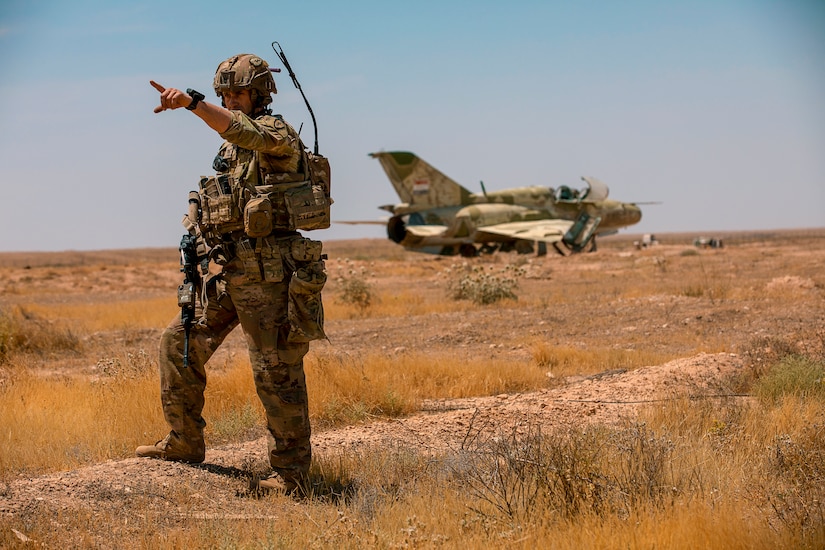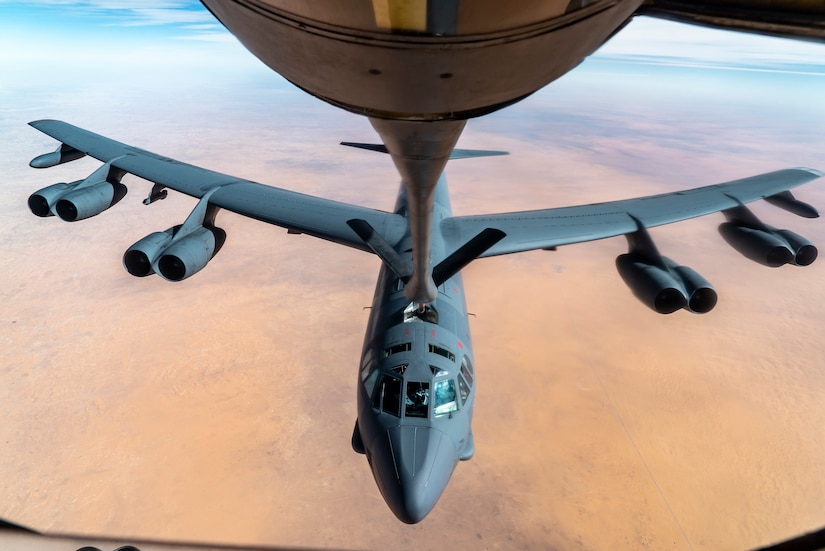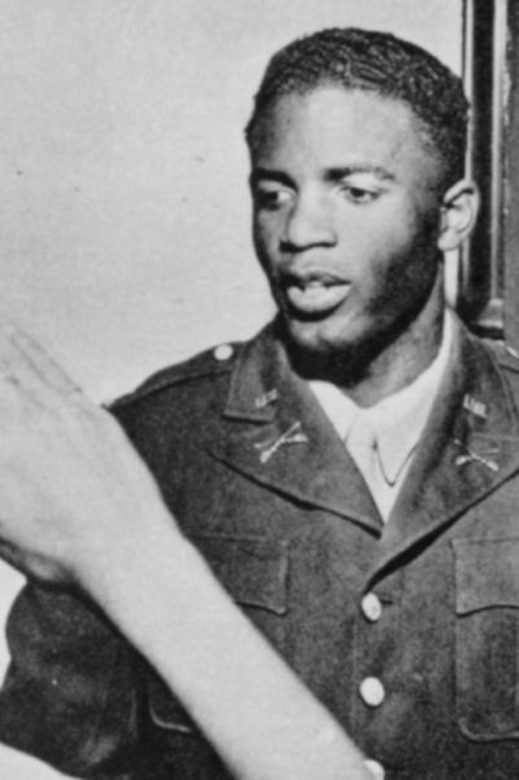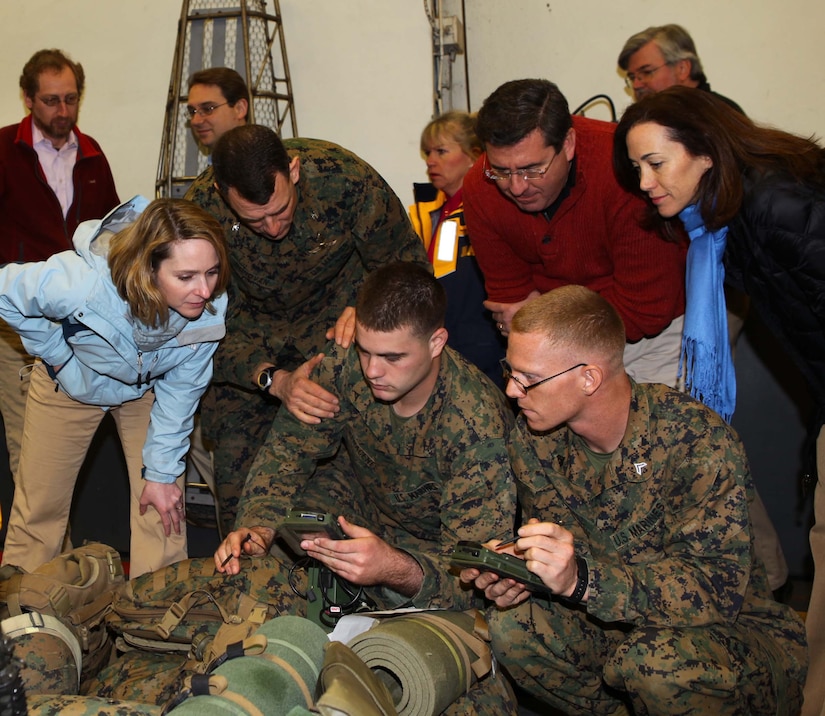Feb. 8, 2021
Pentagon Press Secretary John F. Kirby
PRESS SECRETARY JOHN F. KIRBY: Afternoon,
everybody. OK. Just a couple of points right off the top, and I'm
going to get right at it.
As you probably saw on Friday afternoon, Secretary Austin issued some
guidance to the force about the directed stand-down that he ordered to
address the issue of extremism in the ranks. Specifically, he directed
commanding officers -- specifically, he had directed commanding officers
and supervisors at all levels to select a date within the next 60 days
to conduct a one-day stand-down with their personnel. He made it very
clear that leaders have the discretion to tailor their discussions with
their personnel as appropriate to their command, their location, to
their operations, but that such discussions should include the
importance of the oath of office that service members take, a
description of impermissible behaviors and procedures for reporting
suspected or actual extremist behaviors in accordance with the DOD
instruction.
This is also, importantly, an opportunity for leadership to listen to
the men and women they lead, and to their concerns, to their
experiences, and maybe even to their possible solutions for how to
tackle this problem.
The last thing I'll say on this -- and the secretary did it himself,
but it's an important point to reiterate -- is that this is just a step
in what the secretary believes will be a very deliberate process to try
to tackle this problem. He understands that a one-day stand-down across
the force isn't going to -- you know, isn't going to solve everything,
but it might bring to light concerns and experiences that we're
otherwise not aware, and he was informed by his own experience in the
mid-90s about stuff that was going on in his command right underneath
his nose that he didn't realize about.
So part of this, a real big part of this is, as we say in the Navy,
getting down to the deck plates, and to trying to understand more how
the problem what exists out there in the force and -- and -- and again,
listening to our men and women as they share their own views and
perspectives, which will no doubt, I think, inform whatever procedures,
policies or actions that the secretary puts in place going forward.
On the personnel front, we continue to welcome new members across the
Pentagon. Today, we onboarded 11 new employees, and that brings our
total to 56, 57 if you count the secretary, out of approximately, you
know, 350 positions. So we're chipping away at it, and we're getting
more people on board and we're making this -- doing this in a very
deliberate fashion, and we welcome them all, and we -- we're thankful
for their willingness to serve the country.
Finally, we're going to have a busy week here in the building, and we
look forward to a visit on Wednesday by President Biden, the
commander-in-chief.
And with that, I will open it up to questions. I think Bob, we've got you on the phone. Is that right?
Q: Yes, thanks, John. I just wanted to ask you a couple of things
-- a couple of other things that you announced last week, and whether
you have any update on those things. First is the -- whether you have
any more DOD teams that are getting set up at FEMA sites for vaccination
that puts us beyond what you announced last week. And the second one
is whether the service chiefs have provided to Secretary Austin the --
the information he asked them for about the sexual assault programs
within -- I think he gave them two weeks. Has that been provided yet?
MR. KIRBY: Thanks, Bob. I don't have an update for you on the
request to support FEMA and state and local authorities. We are still
working with FEMA to determine what other sites they would like us to
populate in this first tranche of 1,110 active-duty personnel, and we
are still working through the sourcing solutions for the first team, and
exactly, you know, where that's going to come from. So I'm afraid I
don't have any specific updates for you on that today.
As for your second question, the services did in fact submit their
reports on time to the Personnel and Readiness director here at the
department. And we expect that the -- the secretary will receive a
readout of those reports this week, probably mid-week, we're working on
that with the schedule but they did submit, and he'll get a readout
later this week and then as appropriate, we'll certainly keep you
informed.
That answer your questions, Bob?
Q: Yeah. One quick follow-up, if you don't mind, on that second
part. What would be the next step after the secretary gives the readout
on what the programs are? What does he intend to do then?
MR. KIRBY: Well, so a couple of things. I mean, certainly this --
these reports from the services will help inform the secretary's
establishment and conduct of the 90-day commission that President Biden
ordered, which DOD will run.
Part and parcel of the tasker that he put on -- out on day two, if
you might remember, was to task the services to identify senior leaders,
both uniformed, civilian, and enlisted uniformed, to serve as members
of this commission. And that too, those names were submitted by the
services, so he'll be using the reports and the readout he gets this
week to help him actually populate and organize the work of the 90-day
commission that the president ordered.
Did that answer your question, Bob?
Q: Thank you. Yes, thanks very much.
MR. KIRBY: OK.
Go to Jennifer Sennheimer from -- I'm sorry, Steinhauer, New York Times.
Q: Hi, I was just wondering if you have any more clarity on what the
situation has been last week on COVID in the military, getting the
vaccine? I inferred from some things you said last week that there has
been a significant refusal, but I know you didn't have specific numbers
and I'm wondering if there's been advancement on that.
MR. KIRBY: I'm afraid I don't have good data for you on that. Let
me take the question and see what we can do to -- the -- but I think
it's important to remember that I don't think there's consistency in
terms of how commands at the unit level, you know, how and whether and
to what degree they actually keep track of refusals. Certainly they
keep track of vaccines on hand and vaccines distributed, but I don't
know that there's a uniform reporting process for refusals.
And, again, it is not a mandatory vaccine, and we have a duty to
protect certainly the privacy as well as the private medical concerns of
individuals who, for whatever reason, decline to take it.
I -- so I can't promise you specific data, Jennifer, but what I can
promise you is we'll take a look and see if there's a better way to
quantify this.
Tom?
Q: Hi, Jonathan. Speaking of data, has the secretary received any
more information from the services about the extent of extremism in the
military? I know the Marines put out some information, 16 Marines over
the past three years who had substantiated information of domestic
extremism, mostly social media posts. Number one.
Number two, in his stand-down order, he talked about supervisors,
commanders talking to the troops about proper behavior and so forth.
Listening to them and maybe coming up with possible solutions.
I'm just wondering if the secretary or anyone in the building, do
they have possible solutions? And will the supervising commanders kind
of just do their own thing or will they get guidance, readings,
information from the Pentagon itself?
MR. KIRBY: You saw on the directive that he sent out on Friday, he
did point them to some resources online that we have, that we encourage
them to look at.
What he didn't want to do was be overly prescriptive on this because
every command's different, every service is different. And of course
some commands are very much in harm's way right now, and you have to
make sure that they can do this in a way that doesn't impede their
ability to accomplish missions around the world.
And one of the reasons why he put that memo out on Friday was to sort
of more closely bound it. In other words, you know, making sure that
they try to do this in one day to the degree that they can, and he very
clearly laid out that this is about the behaviors that this kind of
ideology can incite, and can inspire. A reminder about the oath. I
mean, that was very specifically in his memo, something he wants -- very
specifically -- that he wants leaders throughout the force to spend
some time on. And how they do that, I mean, is up to them. I mean,
some commands might want to have their members actually recite the oath
again, and take it again. Or maybe just, you know, study it.
So again, he doesn't want to -- I mean, it's -- he did try to put, I
think, reasonable expectations on the force, but he didn't want to be
overly prescriptive to the degree that these stand-down opportunities
lacked authenticity, lacked a genuine give-and-take and a conversation
with -- with men and women in the force. So I think -- I think that was
-- that was his intent.
And as for your question on data, no, I don't. And again, it's not
the kind of thing that we're centrally tracking here, that OSD has a
database that we can just go pull from. That's not the case right now.
Now, should that be? And -- should that be something that we take a
harder look at, an accumulation of usable data? I think it's a fair
question, and I certainly would expect that the secretary and leaders
here would be taking a look at the data pool and what exists.
But as you know, Tom -- because we've talked about this a lot -- some
of that data doesn't clearly doesn't exist here because it's in law
enforcement lanes, not military law enforcement, but civil law
enforcement. And there's a limit to what, you know, we're going to be
able to obtain in that regard.
So I take the point, the data pool's important, that's something we're going to work through.
And then you had another question, which I thought was fair. That's,
you know, had there been ideas coming from inside the building. And
when he spoke to the chiefs the other day, many of them did have
interesting ideas that I think the secretary believes is worth ironing
out.
One of them is education. You know, we certainly need to take a look
at how we're educating potential recruits when they're still civilians
and before they sign on the dotted line, clearly. There's probably
education that we need to do while people are in uniform and in the --
you know, in service about the pull of some of these extremist groups.
But -- but there was also a very healthy discussion about what do you
do when people are mustering out? And some of these groups are very
organized, they very aggressively recruit soon-to-be veterans because
they believe some -- you know, some of them believe that they espouse
the same ideologies, but more critically, they value their leadership
skills, their management capabilities, their -- in some cases, I think
there's a belief that they -- because they know how to use weapons,
right? So there is an organized almost aggressive effort by some of
these groups to pull veterans into their circle. And so one of the
discussions that they had was to what degree do we really need to take a
look at how -- when we get ready to muster people out, what do we --
what are we helping them understand about what is waiting for them on
the other side? And who might be waiting for them on the other side?
So I think, you know, there was a lot of good ideas shared. And the
secretary was encouraged by the seriousness with which the chiefs took
it. So, yes, there are some good ideas coming from inside the building
too.
Jen?
Q: John, one thing both this administration and the last agree on is
that genocide occurred in Xinjiang province and is still occurring in
China. Does the Pentagon have evidence that genocide is occurring in
China? And if so, what does that require of you as a military?
MR. KIRBY: I certainly wouldn't speak to intelligence issues, Jen.
So I don't want to get into evidentiary disclosures here, except to say
that the department supports the assessment made by the State Department
in terms of what has happened to the Uighurs. And we would refer you
to the State Department for further comment on that.
Q: And just to follow up with a question troops around the world.
Does the Biden administration have its eye on certain areas where they
would like to bring troops home? And could you see a situation where
President Biden sends more troops to Afghanistan since there was a swift
drawdown at the end of the last administration?
MR. KIRBY: I would not get ahead of the commander-in-chief in terms
of force posture decisions. This force posture review that he has
tasked the secretary to conduct really is just now starting. And as I
said last week, we expect it to be complete by mid-summer-ish or so.
And I think that will greatly inform an inter-agency discussion and
decision-making process about where we have troops, where we need more,
where we need less. And I would not want to get ahead of that
decision-making process at all. That just would not -- that would not
be wise.
MR. KIRBY: Let me go back to the phone here. I promise, I have to
do two on each side and then we will keep coming back. But I have been
counseled about this so I need to make sure that I am doing it right.
Idrees from Reuters?
Q: Thanks, John. A quick question on the FEMA request for COVID
assistance. Is the expectation that that number of troops required is
still going to go to about 10,000? And if it is, is the secretary
satisfied with sort of the pace at which the request is being sourced?
Obviously a thousand or so have already -- you know, are about to move
out. But is he satisfied that the department is filling that request
quickly enough?
MR. KIRBY: The secretary is satisfied that the services have taken
this request seriously. And I think it's really important to understand
that we have to work in lockstep with FEMA, state and local authorities
here. So, you know, you mentioned the 10,000 number. I know that's a
number that FEMA has acknowledged is in their request.
I would tell you that what our focus is on is more towards
capabilities and not so much numbers. And so I don't know what -- when
we're all -- when it's all said and done, I can't say with certainty
what the final total number will be. That's why we're doing this in
tranches, working in lockstep with FEMA and, again, state and local
authorities to make sure that we are providing them numbers that they
can accommodate and can handle and can be -- and will be helpful and not
overwhelm them, you know, with teams showing up before sites have been
established and agreements have been worked out with state and local
authorities to do this.
So we want to do this at a very deliberate pace so that, you know,
we're not overwhelming the system but we're also ready to go when FEMA
and state and local authorities are ready to have us. Did that answer
your question?
Q: It does. And just to follow -- a totally separate topic,
President Biden said he is coming on Wednesday, is there anything in
particular he will be announcing or is it more of a get -- not
get-to-know-you, but introductory meeting at the Pentagon?
MR. KIRBY: Well, I certainly wouldn't speak for the president in
terms of anything that he would have specifically to say. What I would
tell you is that what we're planning for is for him to get a chance to
meet with senior leaders here at the Pentagon, senior civilian and
uniformed leaders. He will have time with them to talk about foreign
and defense policy issues as appropriate. I don't have a specific
agenda of what the topics will be. That would be something for the
White House to speak to.
And then he will have an opportunity to speak directly to the DoD
workforce. And, again, I would -- you know, I certainly wouldn't get
ahead of the president about what specifically his messages will be.
We're glad to have him here. We're looking forward to it. But those
are really the two aims, to get a chance to sit down and talk to senior
leaders here and then also a chance to address the workforce.
Go ahead.
Q: On the issue of the U.S. Space Forces -- the U.S. Space Forces
have been deployed to South Korea, can you tell us what is their mission
and sizes?
MR. KIRBY: You're saying that they have been deployed to the Republic of Korea?
Q: Yes.
MR. KIRBY: I'm not aware of that. So I...
(CROSSTALK)
MR. KIRBY: I trust you. I'm not aware of that particular
deployment. I'd refer you to the Space Force to speak to their specific
operations.
Yes, back there.
Q: Thank you very much. I want to follow up the global force
posture review, I understand you can't get into the detail of it right
now, but the Pentagon regards China as the biggest challenge. So would
the Pentagon consider the option of increasing the military presence in
the Asia-Pacific region throughout this review?
MR. KIRBY: My answer would be the same. I'm just not going to get
ahead of decisions that the secretary hasn't made yet, and that the
whole reason we're doing a posture review is to get a better sense of
the lay-down around the world, match it to the strategy and the mission
sets, and no decisions about -- no changes to force posture, you know,
in the Asia-Pacific are in the offing today.
We will continue to maintain our security commitments to our allies
and partners there. We will continue to maintain rotational force
deployments in and out of the region, just like we talked about last
week with aircraft carriers. But as to specific force posture
hypotheticals, I just don't think that would be wise to get into.
Let me go to the phones again. Dan Sagalyn, PBS?
Q: Thanks for taking my question. Could you clarify who will be on
the sexual assault commission? Is it going to be just people who work
at DoD? Will there be outside experts? Can you tell us what is their
charter? Are they going to take outside trips?
MR. KIRBY: Well, thanks, Dan. So we know for -- we know at the very
outset one of the things that the secretary tasked was for the services
to come back with senior leaders, again, enlisted, officer, and senior
SES civilian members to help form the core of this commission. The --
it has not been completely fleshed out yet so I don't want to get ahead
of that. I'm not saying that all those numbers are the sum total; I'm
sure the Secretary will want to take a look at that and appropriately
resource the commission to make sure that they are actually able to come
up with tangible, practical solutions to solving this scourge and as
for whether they'll go outside, again I don't know but I would not be
surprised if they, in the course of their work, are willing to reach out
and consult experts outside the Department of Defense.
That makes eminent sense and I wouldn't be at all surprised if that
happens. As for travel, nobody's traveling much right now, Dan, so to
the degree travel is absolutely necessary to conduct the commission's
work, I suspect that we'll take a look at that and take that seriously
but right now it's just I can't get ahead of that right now.
Q: So at this point no decisions have been made if outside experts will be on it or not?
MR. KIRBY: No decisions right now about whether outside experts will be on the commission.
Q: Okay. And my last follow-up questions; does the civilian
leadership at the DOD think of command climate and the situation that
was found at Fort Hood? With respect to sexual assault, was that unique
to Fort Hood? Or does the civilian leadership think that the problem
at Fort Hood or elsewhere, are at every other base?
MR. KIRBY: You're kind of breaking up there but I think the question
was do we believe that command climate will have to be looked at as part
of the commission's work based on what we saw at Fort Hood and I would
point you back to what the Secretary has himself said in testimony, that
command climate certainly, by looking at the Fort Hood reports,
certainly command climate was a factor and he would want that looked at
you know across the force.
Now to your question here, does he believe that it is an issue
everywhere across the force; I don't know that he would go that far. But
certainly you know he believes command climate and leadership and he's
talked about sexual assault being a leadership issue, is certainly a key
part of any command climate. So I would fully expect that the
commission would consider that in their work going forward.
J.J. Green?
Q: Yeah, Admiral Kirby, it's good to see you back at the Pentagon
and thank you for this opportunity for questions. Two quick questions.
The tone of the relationship with U.S. allies, the president's been
very clear about some of the U.S.'s, the posture – the U.S. posture
towards some of the nation's adversaries, like Russia for example; but
from a strategic point of view, how was the DOD under Secretary Austin
positioning itself to engage with the U.S.'s allies in the immediate
future?
The Germany troop withdrawal freeze sent a strong message, but I'm
wondering what the overall strategy is and just quickly, how big a
factor with the NATO mission factor into any strategy?
MR. KIRBY: That's a great question, and very timely because as you
probably know, the NATO Defense Ministerials is next week and the
Secretary is hard at work preparing for that. I think you saw in a
statement that he issued after President Biden's speech at the State
Department last week how seriously in that statement and how seriously
he addressed the issue of alliances and partnerships and reinvigorating
and revitalizing our commitment to alliances and partnerships.
It was no accident that his first call on the first day at the
Pentagon was to the Native Secretary General. He intends to put a lot
of energy into revitalizing our commitments to alliances and
partnerships and it obviously that goes beyond NATO, of course, but the
NATO Defense Ministerial is coming up, give him a great opportunity to
do just that. Did that answer your question, J.J.?
Q: Yes. And I think, well, yeah that’s it, that's good, thank you.
MR. KIRBY: Okay. In the back there.
Q: Today General McKenzie said that there is an increased
competition from China and Russia and the Middle East against the United
States which adds another layer of complication to the already
instability in the region. What is the Biden administration's military
or defense strategy against China and Russia and the Middle East?
MR. KIRBY: There's no question that Russia and China are involved in
areas in the Middle East and I think you heard General McKenzie speak
specifically to the degree to which that Russia has not been helpful in
places like Syria. You also heard the Secretary talk about the existing
National Defense Strategy and his agreement that the central tenets of
that defense strategy, that China does pose a pacing challenge to the
U.S. globally, not just in the Middle East but globally and that Russia
as they try to be resurgent, very often acts in ways that are inimical
to not only our national interests but the national interests of
countless others in the international community.
He will, as he goes through this global posture review, take a look
at whether or not we are properly resourced and that we are executing
the right missions, to make sure that we're protecting the United States
and our national interests against those that would challenge that. So I
don't want to get into specific Middle East strategy here, since we're
just now starting this force posture review.
Q: Just a follow-up. And also right now Russia and Iran are
fortifying Assad forces in Northeast Syria and the tension is mounting
between Assad's regime and the SDF. So is the United States prepared to
take action if it escalates into a conflict, a combat between SDF and
Russia and Iranian-backed militias?
MR. KIRBY: I won't talk about operations, specific operational
issues here at the podium and I'm certainly not going to get into
hypothetical future operations that may or may not happen, but I think
you did hear General McKenzie speak today, that we are in direct
communication with the Russian military to facilitate air and ground
deconfliction. We continue to urge Russia and all of the parties to
adhere to neutral deconfliction processes and to not take any
provocative action in Syria.
Let me go to the phones. Todd South?
(CROSSTALK)
Q: No sir, no question, I was on mute.
MR. KIRBY: There was a no next to your name and I missed it. They
tried to write it in bigger font, look at that, and I still missed it
without my glasses.
Luis Martinez?
Q: Hey John, thanks, all my questions have been answered, thank you.
MR. KIRBY: He did have a yes next to his name. I'm taking credit for that though.
Sylvie.
Q: Thank you. I would like to go back to the previous question
about General McKenzie this morning. He also said that he's very
concerned about the fate of the foreign fighter for ISIS in Syria and I
want to know what is the message the Biden administration wants to send
to the Western countries who have citizens in these camps?
MR. KIRBY: Well, I mean, there's a couple of top points there. I
mean, it's not a new worry that ISIS would want to take advantage of
refugee camps for incitement and recruitment, and I think the general
was reiterating that, the longstanding concern.
And I would also say that, you know, we work in tandem with local and
coalition partners as well as the international community to try to
find a multi-pronged approach to reduce the risks that are associated
with ISIS fighters in these detention camps, and with radicalized
individuals.
Humanitarian organizations administer the camps, we don't -- we're
not in those camps. But we have continued to send a message to the
international community that we all must work together to try to find
local solutions, to try to minimize that risk.
And as for, you know, specific U.S. policy with that -- with that
camp in northeast Syria, we point you to the Department of State.
Q: So you think the NATO allies do enough to take care of their citizens, then?
MR. KIRBY: You've probably seen before, I mean, we obviously would
support states that have foreign fighters to bring them home and to hold
them accountable within their own criminal justice systems.
This isn't -- it's not a specifically NATO problem. I mean, many
countries have had foreign fighters who have been inspired to join ISIS
or to support ISIS, and so again, we call on the international community
to kind of help us solve this problem collectively.
Joe?
Q: Thank you, John. I would like to go back to Katherine's question
in regards to the situation in northeast Syria. Could you tell us or
could you give us an update about the current status of the U.S. support
to the SDF?
MR. KIRBY: So yeah, hold on a second, Joe. Just make sure I got it.
There is about 900 U.S. service members that are serving in Syria
right now. The numbers do fluctuate daily due to operational
requirements. I think it's important to remember that our mission there
remains to enable the enduring defeat of ISIS.
And U.S. service members that are there are supporting the
defeat-ISIS mission in Syria, that's what they're there for. And
they're working in conjunction with local partner forces in the
northeast part of that country. That's been an -- that's been an
enduring mission.
Q: But do you have any idea if there are any -- if the United States
is providing any military materials for the SDF or there are any
military-to-military training to those -- to the elements of the SDF?
MR. KIRBY: Part of the mission continues to be support to the SDF as
they continue to fight ISIS in the region. I'm not at liberty to
quantify that or qualify that more deeply than that, but as General
McKenzie talked about this morning, I mean, that -- that defeat-ISIS
coalition, which does include members of the SDF, that work continues.
Even though ISIS is greatly diminished. You know, there's -- that work
is still important.
OK?
QUESTION : Can I do a quick follow-up on that?
MR. KIRBY: Yeah.
Q: Are American troops still protecting those oil fields? Is that part of the mission, or is that no longer part?
MR. KIRBY: I would just -- in terms of the -- you're talking about the...
Q: Oil fields in the northeast.
MR. KIRBY: ... that company, Delta Crescent Energy, is that what you're talking about?
Q: Well, there were a number of oil fields that the U.S. was -- U.S.
forces were protecting up there, under the previous administration? Is
that just no longer part of the mission or is that -- does that
continue?
MR. KIRBY: I'd say -- well, except for where appropriate under
certain existing authorizations to protect civilians, DOD personnel or
contractors are not authorized to provide assistance to any other
private company, including its employees or agents seeking to develop
oil resources in northeastern Syria, I think I'd leave it at that.
Go ahead, you've been very patient.
Q: Yes, thank you very much, Mr. Kirby, (inaudible) Afghan journalist.
MR. KIRBY: I know. You don't have to introduce yourself every time, I know.
Q: Because of the mask. OK. Do you have any updates on also
Taliban visiting different countries in the region? Like Uzbekistan,
Turkmenistan? And they already travel to Russia? Taliban?
MR. KIRBY: Do I have any update on...
Q: About the peace process in Afghanistan with the Taliban.
MR. KIRBY: Nothing new to say, other than we continue to review the
agreement, and -- and the degree to which compliance is being met. And
there's been no decisions on force posture in Afghanistan, going
forward.
I think you know that the secretary talked to President Ghani just
the other day, last week, good discussion there. And you know, he
continues to participate in interagency discussions about -- about our
future in Afghanistan, but I don't have anything to announce today.
Q: And do you know the reason why the Taliban did travel to Russia,
Iran, and the regional countries like Uzbekistan, Turkmenistan? Maybe
people say they get their support against the United States for peace
process?
MR. KIRBY: Yeah, I'm afraid I can't speak for the Taliban. I'm only barely able to speak for the Pentagon right now.
Lara?
Q: Thanks, John. So just a quick clarification and then a follow-up.
Does the global posture review, I think you said is expected to be
completed by mid-summer. Does that include Afghanistan? And if so,
does that mean we won't go to zero by May, we'll still be talking about
that...
(CROSSTALK)
MR. KIRBY: We talked about this last week. I don't want you to
think that -- that a review on Afghanistan policy and the global posture
review are some sort of separate or parallel tracks. They each will
inform the other, so it's not binary, OK? And again, no decisions of
course to speak to right now.
I've got to go back to the phone.
Q: Sorry, just -- just a different subject. How have our Gulf
partners reacted to the freeze on arms sales and ending intel-sharing
that was announced last week, intel-sharing on offensive coalition
operations in Yemen? And how do you mitigate the concerns that this
might send a negative signal?
MR. KIRBY: Couple of things there. First of all, I won't speak for
other countries, they should speak for themselves. But the president
was very clear in his direction, in terms of what we were no longer
going to do to support Saudi-led coalition offensive operations in
Yemen.
It doesn't mean that the counter-ISIS fight in Yemen that we are
participating in will not continue; it will. It doesn't mean that we
are not going to continue to support Saudi Arabia as they legitimately
need to defend themselves and their people. But again, I won't speak
for -- I won't speak for other countries.
The -- I think the message was -- was very clear, that the war in
Yemen has become a uniquely horrific humanitarian disaster, and more
needs to be done as a government to try to reduce the effects of that
catastrophe and alleviate the human suffering in Yemen and it was a
decision by this administration that a step in that process would be to
curtail the support to the offensive operations in the country.
(CROSSTALK)
MR. KIRBY: Go ahead.
Q: Yemen and one question on Iran. But today is the ...
MR. KIRBY: You said you were following up on Yemen.
Q: Yes. Well, I might as well ask a second question. Take my chances.
MR. KIRBY: Go ahead.
Q: So today during his address to NEI, General McKenzie said, quote,
unquote, "we will move out smartly to comply with the direction we were
given," talking about the decision to refuse assistance to offensive
operations to Saudi Arabia and Yemen. So has that type of assistance
been terminated or not? Is there a day for that because it seems based
on his statement it's still ongoing? That's the first one.
And the second one, today Russia announced joint maritime exercises
in the northern Indian Ocean between Russian, Chinese, and Iranian
Navies. How do you look at such activities? Do you think they -- how do
you think they impact regional security one way or the other?
MR. KIRBY: On the exercises, I mean, navies exercise. I did an
awful lot of that myself. That's what you do when you're at sea,
sometimes you exercise. And I don't think a particular exercise in
itself that more needs to be read into it than not.
What we would say is that exercising naval capability is to be
expected and I don't think we view exercises like this as contradictory
to -- or as an impediment to our ability to defend freedom of the seas
and to support our alliances and partnerships around the world.
I think you might be reading a little -- I mean, I don't want to
speak for General McKenzie but I think you might be reading a little bit
too much into this. I mean, the president issued his order, General
McKenzie said he's following the order, the kinds of support to the
offensive operations are ended. But I can't speak to every little
specific process and I think that is probably what General McKenzie was
referring to.
But I wouldn't -- I think you might be reading more into it then you need to.
Q: Over?
MR. KIRBY: The president and his commander in chief issued an order
to end all support to offensive operations of the Saudi-led coalition in
Yemen and General McKenzie is following that order.
Q: Thank you.
MR. KIRBY: OK. Take Hope Seck. OK. Jeff Schogol?
Q: Thanks for taking the question. Last week I asked whether each
service member has a foreign Defense Health Agency, Form 207, which
indicates whether or not they received a COVID vaccine. I was just
wondering if you had heard anything about this form that whether that
might provide a uniform way of deciding whether troops have declined the
vaccine?
MR. KIRBY: Jeff, I don't have a good answer for you today. I -- as I
understand it, that that -- I'm not -- I am not sure that form is
uniform, no pun intended, but I tell you what, I'm going to take the
question and since you asked about it last time we owe you a better
answer for that.
Q: Thank you. And to what extent is the Defense Department helping to bring Austin Tice home?
MR. KIRBY: We continue to want to see Austin come home. Nothing has
changed about our commitment to that, and I'm not at liberty to discuss
anything more specific than that other than he's not been forgotten.
Neither has his family, and we continue to want to see him home, you
know, and rejoin his family, but I just don't have any updates for you
on that. Back in the back?
Q: Thank you for taking my question. Kristina Anderson, AWPS News.
Let's see, arctic strategy is relatively new, but it was formed at a
time when multilateralism and emphasis was not so strong on
partnership. Is there any thought to now revisiting that in the near
future with an eye on pre-standing partnership in the foreign origin...
MR. KIRBY: I think part and parcel of the secretary's desire to
restore, revitalize alliances and partnerships. I think you'll see that
manifested in places all over the world, and I would fully expect that
whatever the approach to arctic strategy is going forward it will be a
multilateral one. It will be cooperative, and it'll be integrated not
just internationally but inside the interagency.
The secretary has made it very clear that he'd use climate change as a
national security issues because it affects our operations. It affects
our facilities. It certainly affects our security and stability around
the world, for which and to which American men and women have to
deploy. So it's - and that - and obviously lots of change going on in
the arctic.
I think without getting ahead of decisions he hasn't made, I can
assure you that he will be looking at arctic strategy in a
collaborative, multilateral way.
Q: Follow up? Just talking about climate change and so forth, is
there any look -- is there any chance of the effort to visit
biodiversity as part of that overall picture of climate change because
this is a big issue that's developing in Europe for instance, but the
U.S. hasn't really -- that hasn't -- I haven't seen it reflected in U.S.
policy yet.
MR. KIRBY: I don't have a good answer for you other than to say
that, you know, he's certainly going to be as part of the global posture
review and just strategy reviews in general. He'll be looking at the
full panoply of challenges that the climate poses to national security.
I don't want to rule anything in and out of that specifically. I don't
have a good answer for you specifically on biodiversity, but it is on
his mind and has been certainly even before he took that job, so more on
that later. Back here?
Q: Will Secretary Austin brief some of the media with the president
on Wednesday? If not, when will he brief members of the media? And
following up on a question from last week, do you have costs yet on the
National Guard presence in the Capitol?
MR. KIRBY: So again, I characterize the president's visit, and I'll
let the White House speak specifically beyond that. The secretary will
brief you. He's made that commitment, and I think you can expect that
soon.
I actually do have an answer for you on that. National Guard. So
the estimate through March 15 is that the total cost of National Guard
support will come to $483 million. $284 million of that is for
personnel, and $199 million of that is for operations, and that gets us
through March 15.
Q: Do you have a further breakdown than that for what it will cost, where that money is spent?
MR. KIRBY: Well I could break it down by Army and Air National Guard
if you want that? That's the best I got right there. For the Army
National Guard personnel comes to $256 million. Operations at $165
million. Air National Guard, $28 million for personnel, $34 million for
operations. And I'm told that it all adds up. I didn't do the math
myself, but I've been told that those numbers all add up.
Q: OK.
Q: What about hotels?
MR. KIRBY: What was that?
Q: What about hotels?
MR. KIRBY: That -- I don't know -- I'll check, but I'm pretty sure that's factored into this -- into these costs.
Q: Can I ask one more thing?
MR. KIRBY: Sure. You get the last one today.
Q: Yes. Thank you very much. On U.S. in Korea, South Korea joint
military exercises on March next month, is there any changes coming, any
scheduled changes?
MR. KIRBY: I will refer you to the U.S. Forces Korea for their
specific exercise regimen. I don't have any updates on specifically the
-- I'm sorry?
Q: Why don't you find it out? Maybe those pending (ph)...
MR. KIRBY: I'll tell you what. I'll take the question and we'll see if we can find out...
Q: I was ask the South Korea, but that’s their job. Your job is right here. This for you.
MR. KIRBY: Thank you. Thank you. I...
Q: You have to ...
(Laughter.)
MR. KIRBY: I will try to remember that. Thank you. I will try to remember my job. Thank you. All right. See you guys.
(Laughter.)
